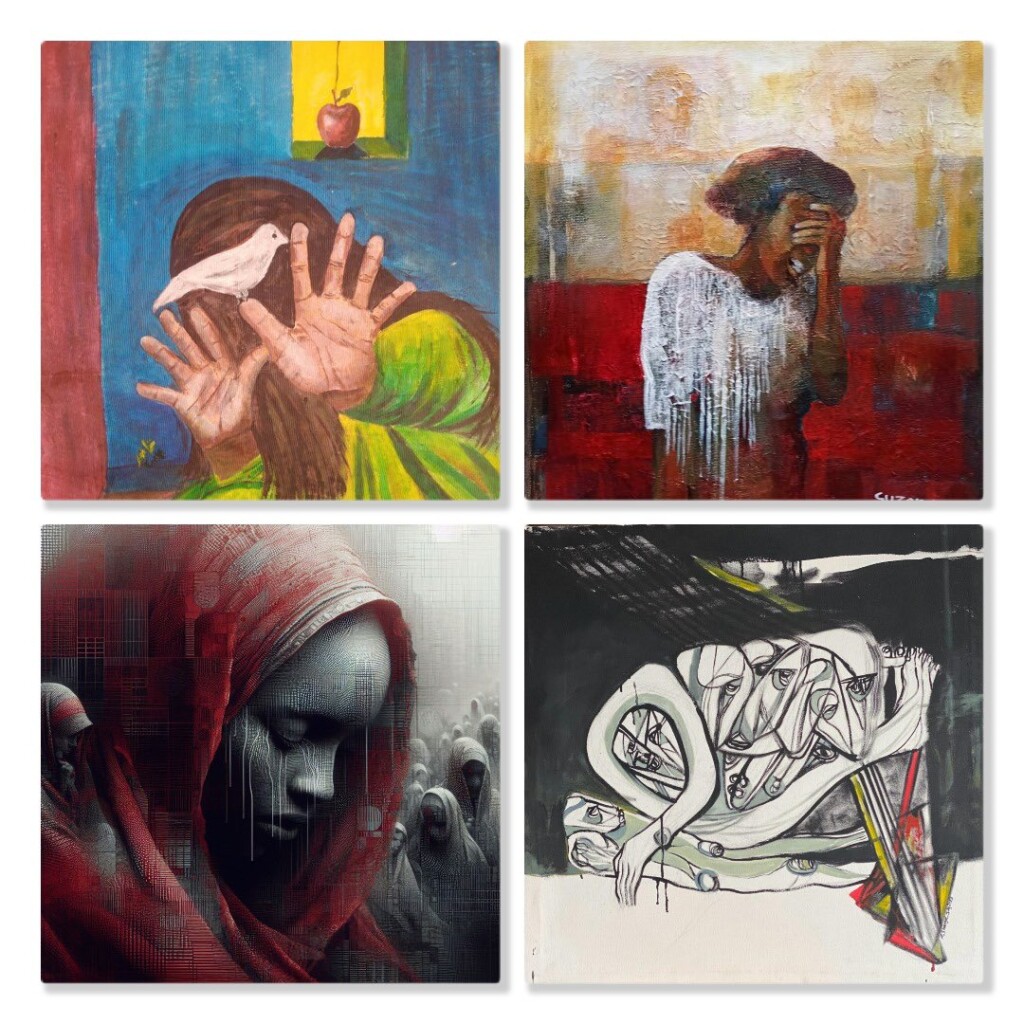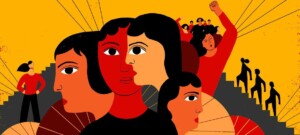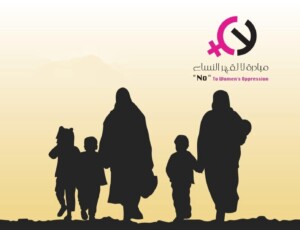UN experts: rape victims in Sudan need ‘immediate support’

Drawings and paintings about rape and sexual violence in Sudan (Image: Sudanese Together Against Rape and Sexual Violence Campaign)
A group of 12 UN human rights experts on Friday called for immediate support for survivors of gender-based violence and an end to the targeting of women first responders and human rights defenders by all armed groups in Sudan.
In a press release by the Office of theUN High Commissioner for Human Rights (OHCHR) in Geneva on Friday, the UN experts warn of the devastating lack of adequate care for survivors of sexual and gender-based violence in Sudan. This includes sexual and reproductive health care and psychosocial care.
They expressed “their grave concern for the many documented cases of sexual abuse, rape—including gang rape— enforced prostitution, sexual slavery, kidnapping, enforced disappearances and/or unlawful killings by the Rapid Support Forces (RSF) and other armed groups.
“These violations are occurring amidst catastrophic levels of humanitarian crisis within Sudan, which have displaced of more than 7.9 million people” within the country.
The experts further call on all parties to the conflict to immediately cease attacks against women first responders and human rights defenders who document violations and provide services to survivors. From January to June 2024, at least nine women human rights defenders and activists were targeted by parties to the conflict.
“The layers of violence, including the arbitrary detention, arrests, violations of due process and fair trial, and killings of women first responders and rights defenders, are appalling and perpetuate a chilling effect on the delivery of services and processes to ensure documentation of human rights violations, accountability and justice,” the experts said. They called for an end to the violence, improved humanitarian access to the affected population, and a swift and effective investigation of human rights violations.
“At least 6.7 million people are still at risk of gender-based violence in Sudan, with internally displaced, refugee and migrant women and girls being particularly vulnerable.
“The lack of care, stigma, and administrative barriers, including in accessing medical and trauma services, rape kits, emergency contraception, and safe abortion performed by medical professionals, have resulted in dire consequences for survivors and repeated cycles of violence. For survivors who have carried pregnancies to term, pre-and post-partum services are scarce, insecure, or entirely inaccessible,” the experts regretted.
They emphasised that all parties to the conflict must ensure the meaningful leadership and participation of women in the conflict resolution process in accordance with Security Council Resolution 1325.
“Women are continuing to raise their voice to call for a ceasefire, unhindered access to humanitarian aid, and effective monitoring of both. Women’s meaningful participation must be advanced as a matter of their rights and in order to achieve lasting and sustainable peace,” they said.
The experts have communicated these concerns to the Sudanese de facto government in Port Sudan and the RSF.
Since fierce battles broke out between the Sudanese Armed Forces (SAF) and the RSF on April 15 last year, reports about gender-based violence, often committed by invading RSF paramilitaries, multiplied. “We receive new reports night and day,” the head of the Combating Violence Against Women Unit of Sudan’s Ministry of Social Affairs said after seven weeks of war. “Most of the victims of sexual assaults are women and girls aged 12-17.”
She noted that the rape cases documented by the unit “represent only two per cent of the actual numbers”.
In April this year, the Strategic Initiative for Women in the Horn of Africa (SIHA) Network reported about the consequences of sexual violence in Sudan, including unwanted pregnancies and suicides, and stated that reports on rape have expanded from Khartoum, West and South Darfur, to include El Gezira, Sennar, South Kordofan, and North Darfur.
A month later, the African Centre for Justice and Peace Studies (ACJPS) reported about unwanted pregnancies due to inadequate access to medical care. In May as well, the Sudanese Together Against Rape and Sexual Violence campaign launched an initiative to pressure the SAF and the RSF to commit to prohibiting sexual violence.











 and then
and then